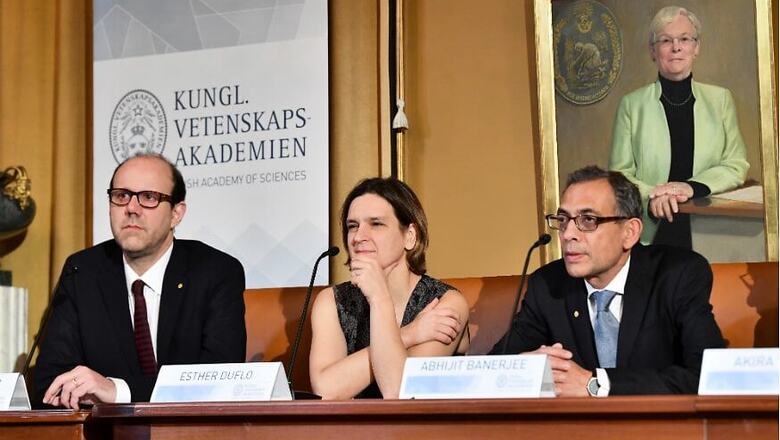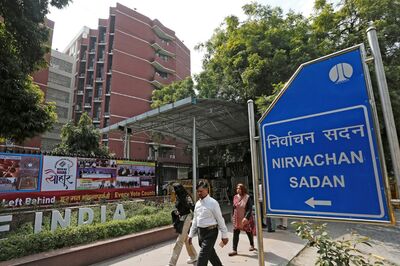
views
Stockholm: The war on poverty can not be won in one major battle, but in a series of small triumphs. This was the firm belief of Abhijit Banerjee, Esther Duflo and Michael Kremer, winners of this year's Nobel Prize in economics, when they started their experimental approach to alleviating global poverty.
The trio on Tuesday received the Sveriges Riksbanks Prize in Economic Sciences in Memory of Alfred Nobel for 2019 at an award ceremony here.
Esther Duflo, speaking on behalf of them, said "we represent a movement that is much broader than any one of us. We believe that the Prize recognizes not only what this movement has accomplished, but also what it could accomplish in the future.
"This movement started with the conviction that it is possible to make significant progress against poverty in the world by focusing on well-defined questions, and being as rigorous as possible in answering those questions in the real world," she was quoted as saying by NobelPrize.org website.
Benerjee and his French-American wife Duflo, who work at the prestigious the Massachusetts Institute of Technology, attended the event wearing traditional Indian dresses.
Banerjee, 58, turned up in a cream kurta teamed with a white gold-bordered dhoti and closed neck black vest. Duflo, 47, wore a blue saree, red blouse and a red bindi.
"In 1990, 1.9 million people lived in extreme poverty. 8.8 million children died before their first birthday..." she said.
Faced with this enormous problem, many people's reaction was to try to not think about it at all. Others hope to find some magic bullet.
"We believed that like the war on cancer, the war on poverty was not going to be won in one major battle, but in a series of small triumphs, and with no doubt many setbacks along the way," she said.
"We had two closely related ambitions. The first one was to contribute to improving the lives of the poor, here and now. The second was to build a better understanding of how they live their lives, from the ground up, by building a fuller picture, one question at a time," Duflo said.
During the speech, Duflo thanked people and organisations which supported their work.
"This work and the culture of learning that it fostered in governments has led to real improvement in the lives of hundred of millions of poor people," she said. "Today, I am also proud to represent women, and in particular women in economics. Tellingly, Elinor Ostrom, the only other woman before me also relied on field work and studied what we can learn from poorer societies, from Nepal to Indonesia. I don't think this is an accident. Development is one field of economics that has its fair share of women," she said.
"Some of my own work has been on the importance of women as role models: I cannot help but hope that this prize, with its emphasis the essential question of how to improve the lives of others, and with one woman among the laureates, will encourage many others to come join us," she said.
The three economists will share the prize money of nine million Swedish krona (Rs 6.7 crore) among themselves. The three winners will donated their prize money to fund grants that will support economic research for the next 15 years, according to US media reports.




















Comments
0 comment